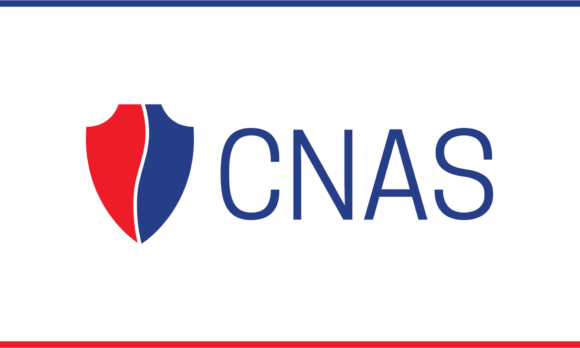
The Gaming Lab at CNAS
From armed conflicts to global pandemics, military strategists and policymakers use gaming to gain insights into their most challenging problems. Games help develop and test strategies, support effective decision making, and communicate vital lessons to key stakeholders.
The Gaming Lab at CNAS, situated within the Defense Program, develops and runs innovative unclassified games and exercises on a range of challenging national security issues. An industry leader, the Gaming Lab develops tailored games along three primary lines of effort: operational wargames, strategy games, and expert elicitation exercises. The Gaming Lab conducts rigorous post-game analysis, identifies key insights from its games, and provides concrete policy-relevant recommendations.
To learn more about using wargaming or similar methodologies to explore difficult problems, contact the Gaming Lab at [email protected].
Wargaming Lines of Effort
Operational Wargaming
The Gaming Lab runs unclassified wargames to examine future warfare in critical regions, develop innovative operational concepts, assess new strategies, and explore novel scenarios. Recent operational wargames include:
- Bad Blood. Prepared for the House Select Committee on Strategic Competition Between the United States and the Chinese Communist Party (CCP), this game explored how the United States could employ diplomatic, military, and economic tools to deter and defeat a Chinese invasion of Taiwan. The game produced insights as to how the United States could strengthen deterrence to avert conflict and uphold a free and open Indo-Pacific.
- Avoiding the Brink. This game series examined how China’s expanding nuclear arsenal could impact the risk of nuclear escalation in a conventional conflict over Taiwan. The games highlighted credibility challenges associated with nuclear escalation management and observed how geographic asymmetries could favor China’s efforts to engage in nuclear coercion.
- Dangerous Straits. Filmed by NBC’s Meet the Press, this game educated the general public about the risks of a U.S.-China conflict over Taiwan and how such a conflict could unfold. The game highlighted areas of potential risk in a future conflict and identified steps the United States and its allies and partners could take to strengthen deterrence and, if needed, defeat Chinese aggression.
Strategy Games
The Gaming Lab employs strategy games to explore critical national security issues and identify solutions that draw on several dimensions of national power. This includes games focused on political-military and non-military aspects of competition and conflict. Past strategy games include:
- Risk and Responsibility. This game series explored how Iran might leverage weapons of mass destruction to counter U.S. interests and how the United States could leverage diplomatic, information, military and economic tools to counter, deter, or de-escalate the Iranian threat.
- When the Chips Are Down. This game examined how China could exert influence over Taiwan’s semiconductor industry to destabilize cross-Strait relations, and identified American and Taiwanese tools available to counter China’s coercive activities.
Expert Elicitation Exercises
The Gaming Lab develops and runs scenario and tabletop exercises, simulations, and red team analysis to examine critical security issues and educate audiences through subject matter expert elicitation. Past expert elicitation exercises include:
- A Deadly Game. This game leveraged public participation to explore a crisis and conflict in the East China Sea. The game educated participants on a wide variety of challenges military leaders could face in such a scenario, ranging from communications and logistics disruptions to attrition of air and naval forces.
- Locked Horns Game. This game examined the impact of economic domain measures in a conflict over Taiwan on China, the United States, and the global economy. The game provided insights for how the United States could maximize the effects of its economic measures.
The Gaming Lab Team
-
Stacie Pettyjohn
Lead
-
Carlton Haelig
Fellow, Defense Program
-
Philip Sheers
Research Associate, Defense Program
-
Molly Campbell
Research Assistant, Defense Program
-
Jennifer McArdle
Adjunct Senior Fellow, Defense Program, Joint Special Operations University and Helsing AI
-
Dr. ED McGrady
Adjunct Senior Fellow, Defense Program, Principal, MonksHood Media LLC
-
Greg Grant
Adjunct Senior Fellow, Defense Program, Senior Principal, MITRE’s National Security Sector
-
Dr. Erik Lin-Greenberg
Adjunct Fellow, Defense Program, Assistant Professor of Political Science, MIT
-
LTG Anthony R. "Tony" Ierardi, USA (Ret.)
Adjunct Senior Fellow, Defense Program, Rebellion Defense
-
Peter Schwartz
-
Tom Shugart
Adjunct Senior Fellow, Defense Program
-
Robert O. Work
Senior Counselor for Defense and Distinguished Senior Fellow for Defense and National Security
-
Becca Wasser
Adjunct Senior Fellow, Defense Program
-
Admiral John Richardson, USN (Ret)
Member, CNAS Board of Directors
-
Philip Breedlove
Member, CNAS Board of Advisors, Distinguished Professor, Sam Nunn School at Georgia Tech
-
Admiral Cecil Haney, USN (Ret.)
Member, CNAS Board of Directors, Former Commander, US STRATCOM
-
Billy Fabian
Former Adjunct Senior Fellow, Defense Program, Senior Analyst, Govini
Recent Publications:
It’s Time to Rethink our Wargames
National security practitioners held several high-profile pandemic wargames and exercises in the years prior to the outbreak of COVID-19. Often, these games eerily predicted e...
Slaughter in the East China Sea
The year is 2030. Chinese troops seize a Japanese island in the South China Sea. Japan dispatches an amphibious task force to retake the island. Soon, U.S. warships and aircra...
A Deadly Game: East China Sea Crisis 2030
On July 22, 2020, audience members played along as the CNAS Defense team and leading experts conducted a virtual wargame in the year 2030, exploring command and information co...
Interactive Tabletop Exercise on the Future of Iran’s Nuclear Program
Nicholas A. Heras, Eric Brewer, Elizabeth Rosenberg, and Ilan Goldenberg lead an interactive tabletop exercise about the future of Iran's nuclear program....
No Safe Harbor
Introduction China is challenging America’s and Japan’s long-standing ability to uphold a peaceful order in the Asia-Pacific region. This is particularly true in the East and ...
Virtual Panel Discussion: Serious Games: How the Pentagon Uses Wargames to Develop Ideas and Inform Decisions
Robert O. Work, Susanna V. Blume, Chris Dougherty, Becca Wasser, Will Mackenzie, Dr. ED McGrady
Jun 16, 2020























